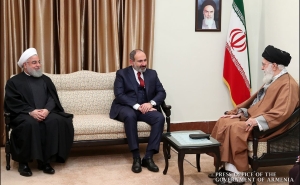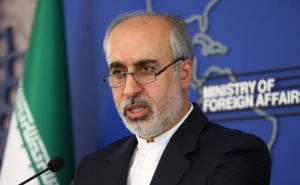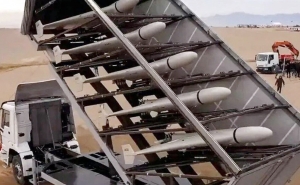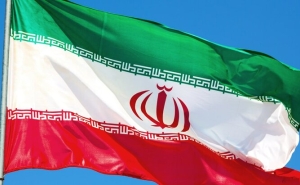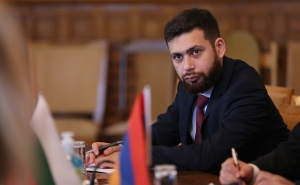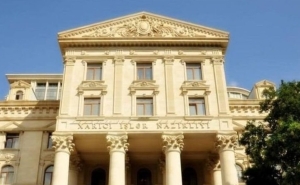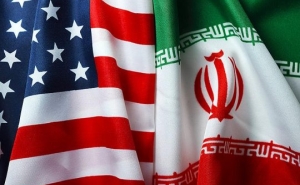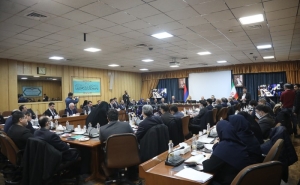After Nuclear Deal Iran Acts More Confident in the Region
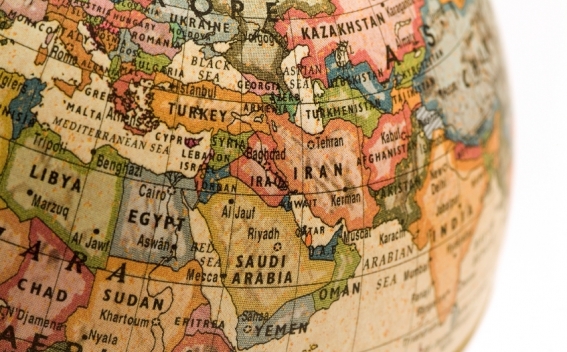
After six world powers and Iran finally managed to sign a nuclear deal, there were speculations among the opponents of the deal in the Middle East and in the West that the release of sanctions imposed on Iran would cause new tensions in the region. In response to these speculations the Iranian Supreme Leader Ayatollah Ali Khomeini declared that the nuclear deal will not cause “wider changes in Iran’s policies towards the US and in the Middle East.” In his recent article entitled “Choose your neighbors before your house” the Iranian Foreign Minister Mohammad Javad Zarif stressed Iran’s top foreign policy priority; the necessity to establish strong ties with its neighbors. In the same article the importance of regional dialogue was also emphasized, which Zarif defined in the following way: “respecting the sovereignty, territorial integrity and political independence of all countries — not to violate their borders — to refrain from intervening in other countries’ domestic affairs, settle disputes peacefully, prevent the threat or use of force, strive for peace and stability, and achieve progress and well-being in the region”.
Although only two months after the deal it is too early to speak about its possible implications on Iran’s foreign policy, so far the initiatives undertaken by the Iranian leaders and the statements made by them give us some ground to assume which way the Iranians intend to go.
Ten days after the Iran nuclear deal was signed the country’s Foreign Minister Mohammad Javad Zarif started his tour in the Middle East, during which he visited his regional allies Kuwaiti, Qatar and Iraq. There were some speculations that the nuclear deal and the warming relations between Iran and the West will negatively affect relations between Iran and its regional allies. The visits and the statements made during it seem to prove the opposite: in his statement the Iranian official underlined the importance of united efforts of Iran and its regional allies, the so-called Shia axis, in the struggle against extremists in the region.
During his visit to Kuwait Iranian Foreign Minister declared: "Iran has always supported the people of this region in confronting the common threat which is terrorism, extremism and sectarianism," Middle East Online reports.
Next trip of Iranian Foreign Minister was to Lebanon, where he again reiterated necessity of united efforts to struggle against “the Zionist and extremist regime,” Jerusalem Post reports. Interestingly enough during his visit to Beirut apart for his meeting with Lebanese officials, Prime Minister, Parliamentary Speaker, Foreign and Defense Minister, Zarif also met with the delegation representing Palestinian faction officials residing in Lebanon and Hezbollah Secretary-General Hassan Nasrallah. Although there was little coverage by the media on the meeting and the themes discussed, the fact of those meeting once more proved that Iran continues to remain committed to support its long-term allies in the region.
Zarif’s trip to Lebanon was the second stage of its Middle East tour and it was supposed to start in Turkey, continue in Lebanon and end in Syria. However the visit to Turkey was canceled at the last minute. Asked about the reasons of the canceled visit to Turkey, Iran’s Foreign Minister noted:
“Turkish President Recep Tayyip Erdogan was in Istanbul, while Prime Minister Ahmet Davutoglu and Foreign Minister Mevlut Cavusoglu were both in Ankara. Thus, the three of them could not have met together on a short notice. But I will visit Turkey next week, so that I have the time to do all the scheduled visits,” Al- Monitor reports.
Although Iranian officials claim that Zarif’s visit to Turkey is still on the agenda, the visit still did not happen. As France 24 argues the postponement of the visit was because of the article published by Turkish opposition daily Cumhuriyet, where Zarif criticized the Turkish foreign policy. In the Article Zarif particularly stated:
"Extremist elements found a convenient environment during the Syrian crisis with the support they received from individuals, organizations and governments in the region and turned into a giant structure in pursuit of fake causes and ideals. Today, those elements are threatening even their own founders and supporters."
Notwithstanding the fact whether the article in reality has became the cause of canceled visit or not, it proves that after the deal Iran feels freer to slam its neighbors and the West in general for their mistakes in the region and is not going to close eyes on their initiatives that are against its interests.
During his visit to Lebanon Zarif discussed his four-point initiative to resolve the Syrian crisis. The plan included the following steps: secure an immediate cease-fire, create a national unity government, rewrite Syria’s constitution to include the majority of Syrian ethnic groups and hold national elections under international supervision, Al- Monitor informs. 
In Syria Iranian Foreign Minister once more reiterated Iran support to Assad contending against foreign intervention in Syria. On the occasion noting:
"It is time for the other players and our neighbors to take note of reality listen to the demands of the Syrian people and work for combating extremism and terrorism," noted Zarif after meeting Bashar al- Assad.
It should be noted that in case of Syrian conflict as well there were speculations that the deal will make Iran to come to compromises with the West vis-à-vis its long-term ally Bashar al-Assad. This kind of speculations were further exacerbated after economist, former Russian presidential adviser Andrei Illarionov wrote in his blog that Russia and the US came to an agreement according to which Russia will support the US on Iran and Syria, while the US will supports Russia on Ukraine, Gordouna reports.
However the developments and the coordinated initiative of Russia and Iran on Syria, (recently Iran officially allowed Russia to use its airs space to deliver as they say humanitarian assistance to Syria) proves that neither Russia nor Iran is going to betray their long them ally, incumbent presidents of Syria Bashar al-Assad.
Thus if we turn to the question posed at the beginning of the article and try to make some assumptions on the role the Iranians have taken after the nuclear deal, we are to state that naturally enough free of sanctions Iran started to act more confident as an initiator in the region. Does it confirm the worries of nuclear deal opponents? Maybe, unless all the interested parties give up the strategy that aims at absolute gains and unite their efforts against common threats in the region.
Other materials on this subject
- Putin Has Phone Talk With Iran President The political settlement in Syria was initiated by Russia, Turkey and Iran, who also vowed to act as guarantors of the settlement of the Syrian conflict.
- Iran Says Awaits US Response to Nuclear Talks 'Solutions' The negotiations, aimed at bringing the US back into the deal and Iran to full compliance with it, had stalled for about two months.
- US Prepares New Options on Iran in Case Negotiations on Nuclear Deal Fail "Because of the way that the Iranians approached and participated in the last round of talks, the President asked the national security team to be prepared in the event that diplomacy fails and to take...
- Iran Ready for Resultative Talks on Nuclear Deal — Top Diplomat "Despite the fact that the West is not implementing its commitments, Iran, for the sake of demonstrating its good will and with an eye of the lifting of the unilateral and illegal sanctions, is again ready...
- Iran Dismisses Idea of Talks with EU and U.S. to Revive 2015 Nuclear Deal The United States said it was disappointed but remained ready to “re-engage in meaningful diplomacy” and would consult with the other major powers to seek a way forward.
-
 17:08
17:08The regular session of the Anti-corruption Policy Council takes place in Jermuk
-
 15:05
15:05The Prime Minister sends congratulatory messages to the supreme leader of Iran and the President of Iran
-
 11:11
11:11Armenia sends earthquake aid to Turkey
-
 10:43
10:43Commemoration of the Pontiff St. Sahak Partev
-
 09:16
09:16Some roads are closed and difficult to pass in Armenia
-
 19:55
19:55Phone conversation of the Foreign Minister of Armenia with the U.S. Assistant Secretary of State for European and Eurasian Affairs
-
 18:30
18:30Prime Minister Pashinyan and President Khachaturyan meet
-
 18:20
18:20Ararat Mirzoyan with Co-Chairman of the OSCE Minsk Group of France Brice Roquefeuil
-
 17:01
17:01Humans could land on Mars within 10 years, Musk predicts
-
 16:45
16:45France, US urge 'immediate' end to Nagorno Karabakh blockade
-
 16:01
16:01Blockaded Nagorno Karabakh launches fundraiser to support quake-hit Syria
-
 15:59
15:59Earthquake death toll in Turkey rises to 18,342
-
 15:43
15:43Ararat Mirzoyan Held a Telephone Conversation with Sergey Lavrov
-
 15:06
15:06French president rules out fighter jet supplies to Ukraine in near future
-
 14:47
14:475 Day Weather Forecast in Armenia
-
 14:44
14:44President Vahagn Khachaturyan wrote a note in the book of condolences opened in the Embassy of Syria in Armenia
-
 14:20
14:20Azerbaijan’s provocations impede establishment of peace and stability – Armenian FM tells Russian Co-Chair of OSCE MG
-
 12:57
12:57France representation to OSCE: Paris calls on Azerbaijan to restore freedom of movement through Lachin corridor
-
 11:40
11:40Command of Kosovo forces highly appreciated preparation of Armenian peacekeepers
-
 10:16
10:16The United States withdrew from sanctions against Syria for six months the provision of assistance after the earthquake
day
week
month
Humidity: %
Wind: km/h


